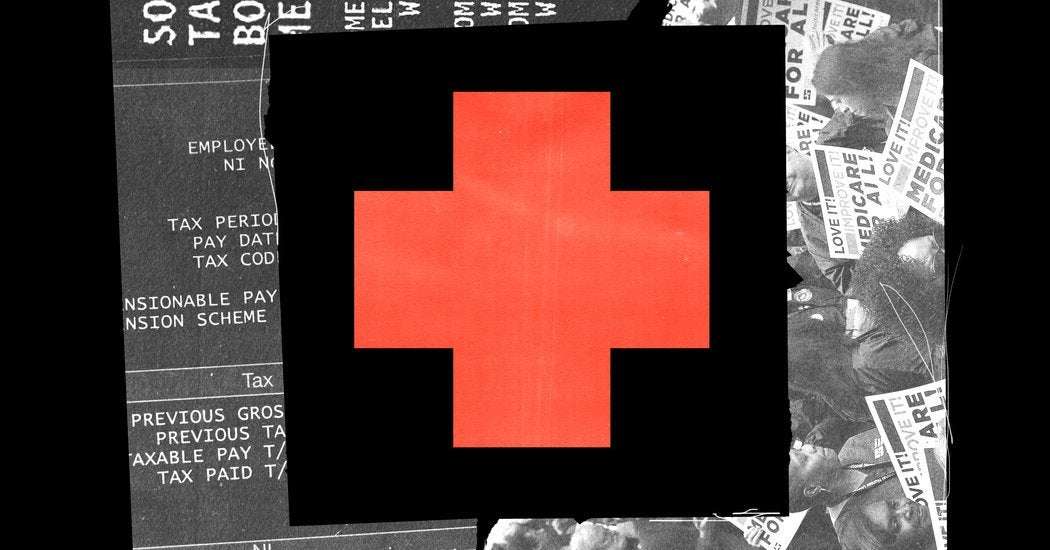The inequities of this arrangement were clear from the start. It excluded elderly and disabled Americans because they couldn’t work, and low-wage workers and racial minorities, because they couldn’t secure the kinds of jobs that offered health insurance. But employer-based insurance was popular — employers had better bargaining power than individuals, and it was easier to have them handle the logistics — and elected officials faced little pressure to create a more robust alternative. In the decades that followed, even as officials fortified public schools, transit systems and utilities, they left health care to the private markets. Eventually, Medicare, Medicaid and the Affordable Care Act filled some of the gaps created by employer-based insurance, but no program ever filled all of them.
By 1960, roughly two-thirds of all Americans were insured by their employers, by 1970 health insurance had become big business, and by the 1980s health care costs were soaring. Some of that increase can be attributed to advances in technology that made care more expensive. But a great deal of the spike resulted from what economists refer to as “price insensitivity” and what the rest of us might call obliviousness. “If the insurer is paying, nobody looks at the bill,” says Zack Cooper, a health economist at the Yale School of Medicine. “So you can raise prices as much as you want, and you can create a much more luxurious system overall, to justify it.”
Unencumbered by the demands of a cost-conscious clientele, hospitals ramped up equipment purchases, expanded hospital wings and workforces, created specialty clinics — and then increased their reimbursement rates to pay for it all. Rather than scrutinize those price hikes, which were passed from hospitals to insurers to customers, employers simply accepted them. And why wouldn’t they? The more generous the insurance package and the nicer the hospitals and clinics, the bigger the tax break for the companies paying the tab. “For employers, it’s essentially the house’s money,” Mr. Cooper says. “But then, for anyone not on that raft of good coverage, it’s enormous costs or nothing.”
That calculus is especially brutal for un- or underemployed Americans, but it’s a bad deal for all workers. Economists tend to agree that health benefits sap wages — meaning that employers recoup at least some of the cost of insuring their employees by paying them less money than they otherwise might. At least some unions say that they spend so much of their bargaining power securing these benefits for their members that they have little left for other crucial fights, like retirement. Lower-skilled workers have long been squeezed out of better paying jobs because, as the economists Anne Case and Angus Deaton note, a labor market skewed by pricey health benefits tends to favor those whose talents can more easily justify the expense.
Perhaps worst of all, employees of every ilk frequently find themselves trapped: changing jobs, foregoing employment or taking professional risks (like starting a business) all involve changes in health insurance and, in the worst case scenario, a loss of coverage. The end result is a medical underclass whose horizons are contracted by the sheer logistics of hanging on to health care.
To change this system, Americans will have to change their thinking. There is a tendency among workers with good health insurance to see those benefits as something that’s purely earned, through work. But employer-based insurance is heavily subsidized by the federal government. Those subsidies are not much different than the ones granted to low-income Americans through Medicaid and the Affordable Care Act, but through the lens of American politics the latter are frequently derided as an outrageous form of welfare, while the former are accepted as par for the course.
That thinking may already be evolving. According to a 2019 poll, nearly 60 percent of Americans agree that health care is a human right and that the government should be responsible for ensuring that as many people as possible can access it when they need to. But to truly realize this ideal, the country will have to stop making employers the sole source of health care for so many people. America must create either a new health care system or offer significantly more options within the current one.

netebek373 on June 29th, 2020 at 11:54 UTC »
It’s a paradoxical scam.
—
Not sick? Work provides health insurance.
Too sick to work? Lose health insurance.
Need life saving treatment? Debt and poverty forever regardless of health insurance.
GiddiOne on June 29th, 2020 at 11:29 UTC »
Medicare for all is a massive win for people, the economy and jobs. You can't leave decisions on life and death to corporations who might decide that letting you die is more cost effective than trying to help you.
Here 30 leading economists have shown that M4A will have massive savings for American families.
It will create jobs and raise wages.
69% of Americans want M4A (88% Dem, 46% GOP)
Americans will save 450B and it will save 68k lives every year.
Here is how much you would pay under M4A. (Edit: Source)
bu_bye_bloated_yam on June 29th, 2020 at 10:55 UTC »
The central flaw is that it is a for-profit system that leaves behind those that can't afford to be ill. It is shameful and cruel that a nation as rich as America does not have universal health care.